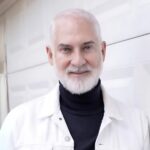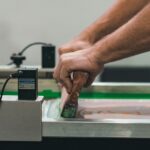The Kindness Effect Summit
The Kindr Foundation hosted its inaugural Kindness Effect Summit on November 21, 2024, at The Set, Hudson Yards in New York City. Sponsored by Happy Coffee, Pharmacopia, and Medium Rare Catering, the summit brought together leading experts and changemakers across neuroscience, psychiatry, education, public health, media, technology, and philanthropy. This transformative event explored how kindness can reshape mental health, build stronger communities, and foster innovative workplaces.
The Kindr Foundation was co-founded by career educators Dr. Doug Carnine and Dr. Linda Carnine, whose lifelong commitment to improving lives through education and kindness has impacted nearly 800,000 students and 7,000 incarcerated adults across the United States. Their journey began in classrooms, where they developed tools to support at-risk youth, and evolved into a nationwide mission to cultivate a culture of “Mindful Kindness.”
Doug Carnine, Professor Emeritus at the University of Oregon, has devoted his career to ensuring that vulnerable populations receive equitable opportunities to succeed. After decades of working with schools and policymakers, he pivoted his focus to the profound power of kindness as a transformative tool for mental and emotional well-being. Linda Carnine, with advanced degrees in Curriculum and Instruction and Special Education, has been a steadfast advocate for underrepresented populations, creating programs that elevate marginalized communities. Together, the Carnines have championed initiatives such as land restoration for Indigenous communities and practical kindness-based interventions for classrooms, prisons, and social service organizations.
“We believe that small acts of kindness can spark a ripple effect, transforming lives and entire communities,” said Doug Carnine. “Mindful Kindness isn’t just about individual happiness—it’s a framework for building stronger, more empathetic societies.”

The Kindness Effect Summit emphasized that Mindful Kindness—a practice combining mindfulness and compassionate action—can be a catalyst for change in education, healthcare, and corporate environments. Dr. Doug Carnine’s opening remarks, delivered alongside Rachel Karry and Jody Weiss, underscored this philosophy, inviting attendees to envision a future where kindness becomes a foundational principle in all areas of life.
The event’s keynote by Dr. Anna Yusim, of the Yale Center for Mental Health & Spirituality, tackled the growing empathy deficit in modern society with her presentation, What a Lack of Kindness Does to Society. Panels such as “Teaching Kindness: Social Emotional Learning,” led by Dr. Carnine and Dr. Donna Dwiggins, illustrated how kindness can be embedded in education systems to create more inclusive and resilient communities.
Attendees were further inspired by presentations like The Bullied Brain vs. The Empowered Brain by Dr. Jen Fraser, which highlighted the neurological impacts of kindness, and Your Brain on Kindness, where neuroscientists Dr. Eva Selhub, Dr. Kamran Fallahpour, and Dr. Kelli Harding shared groundbreaking research linking kindness to improved brain function and well-being.
Building on the summit’s momentum, the Kindr Foundation held a follow-up workshop on November 22, titled PeopleKind. This executive leadership session, facilitated by Justin Freeman and Shereen Eltobgy, equipped HR leaders with actionable strategies to weave kindness into corporate culture, fostering trust and sustainable growth.
The foundation also introduced its Mindful Kindness Programs, which provide educational materials, narratives, and activities to instill habits of kindness in schools, communities, and prisons. These initiatives are based on scientific research showing how small, positive actions can create an “upward spiral” of emotional well-being and social connection—a phenomenon the Kindr Foundation calls The Kindness Effect.
A Call to Action
Through the work of Drs. Doug and Linda Carnine, the Kindr Foundation is building a legacy of kindness that extends far beyond the walls of the classroom or the confines of the summit. Their programs—ranging from youth curricula to resources for incarcerated adults—equip individuals with tools to overcome challenges, connect with others, and thrive in a world that often feels isolating.
“Our hope is that the Kindness Effect Summit inspires people to not only embrace kindness but to use it as a tool to create lasting change in their own lives and communities,” said Linda Carnine.
For more information about the Kindr Foundation and its programs visit www.bekindr.org.
Published by Stephanie M.

















